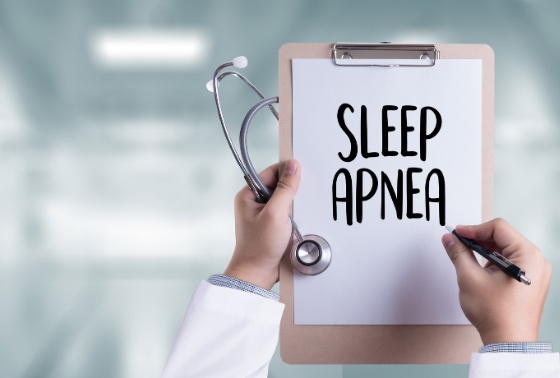Can Orthodontic Treatment Really Help With Sleep Apnea?
Do you tend to snore? Does someone say you stop breathing at night? You might be dealing with sleep apnea. If left untreated, you could experience long-term side effects, such as high blood pressure, heart problems, type 2 diabetes and liver problems. The good news is your doctor and orthodontist may be able to help.
About Sleep Apnea
A sleeping disorder where your breathing stops and starts repeatedly, sleep apnea can be very serious. There are three main types of sleep apnea: Obstructive, Central and Complex.
Obstructive Sleep Apnea: The most common form of sleep apnea, and the one orthodontia can help, obstructive sleep apnea occurs when your throat muscles relax.
Central Sleep Apnea: Central sleep apnea occurs when your brain doesn’t send the right signals to your muscles that regulate breathing.
Complex Sleep Apnea: A combination of obstructive and central sleep apneas.
Common symptoms of both obstructive and central sleep apnea include:
- Snoring
- Morning headache
- Gasping for air
- Dry mouth
- Someone else reporting you stopped breathing
- Hypersomnia
- Insomnia
- Irritability
Children with Sleep Apnea
If you notice your child snoring, mouth breathing or clenching their teeth at night, they may be struggling with obstructive sleep apnea. There are many causes of sleep apnea in children. These include:
- Large tongue, tonsils or adenoids obstructing the back of the throat or nose
- Growth abnormities in the upper jaw or airway
- Allergies, obesity or weak muscles
Treating Obstructive Sleep Apnea with Orthodontics
Your orthodontist cannot diagnose or treat obstructive sleep apnea on their own, but they might be the first to spot the symptoms. Your orthodontist may perform a screening assessment and refer you to a physician for an evaluation.
Although Positive Airway Pressure, also known as PAP, therapy is a common treatment for sleep apnea, your doctor may determine that you’d benefit from changing the position of your teeth and mouth structure. If that’s the case, your orthodontist can recommend the use of an oral appliance for you to wear at night to keep your jaw in the right place. Expanding the upper jaw or arch with orthodontia may also be a treatment option to help curb teeth clenching or grinding.
Conclusion
Obstructive sleep apnea (OSA) is a serious condition that you shouldn’t take lightly. If left unchecked, you can experience frequent sleep disturbances, morning headaches, lack of energy through the day and it can negatively impact other medical conditions. Make sure you speak with both your orthodontist and your physician so they can work together to develop a treatment plan that best fits you or your child’s needs.






